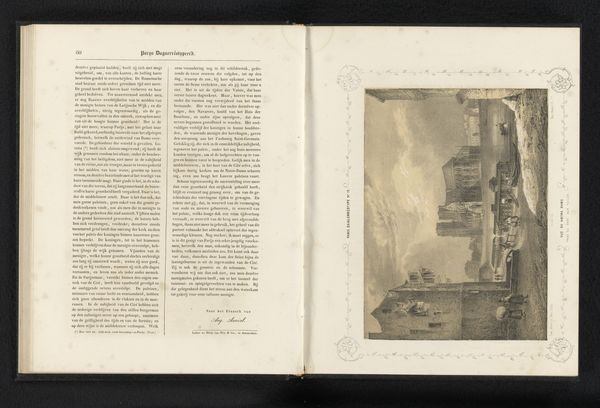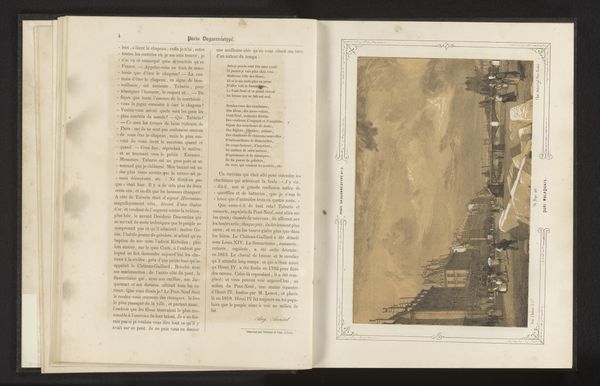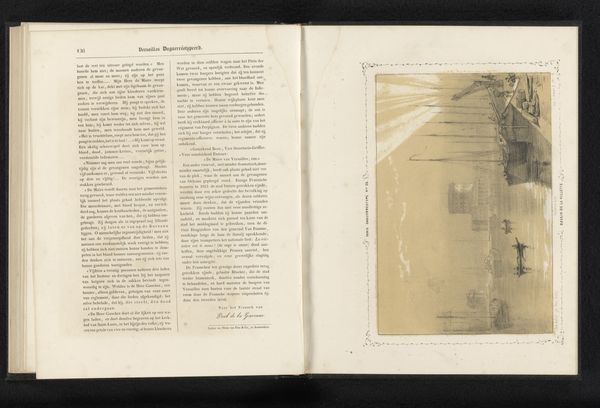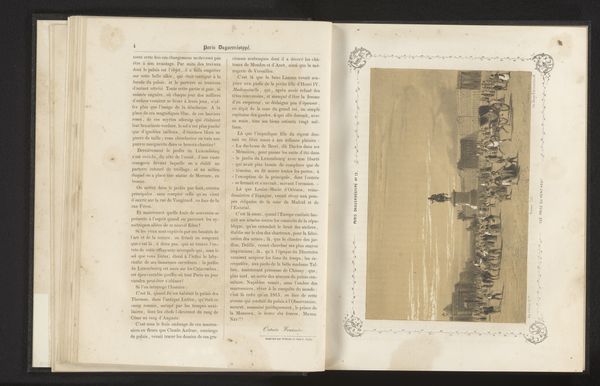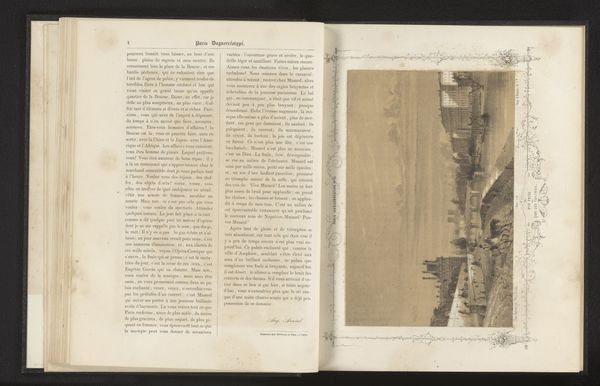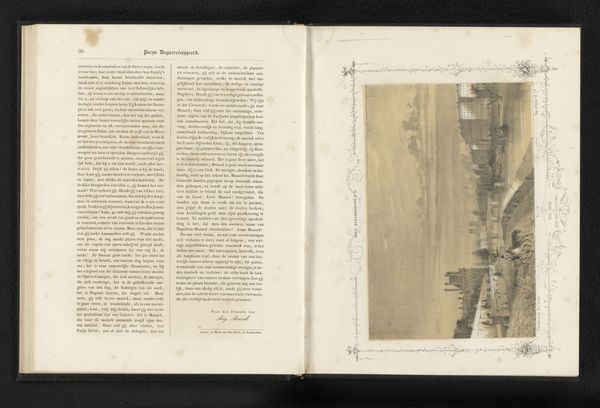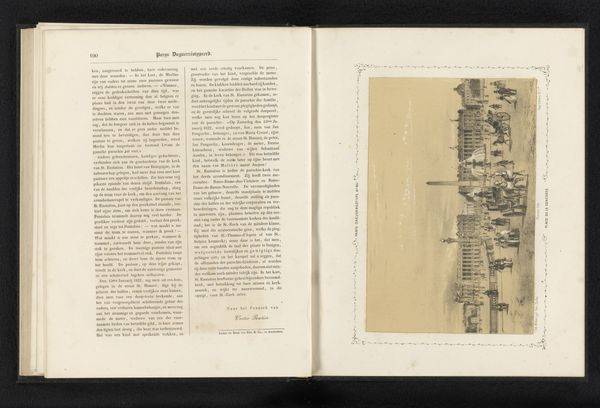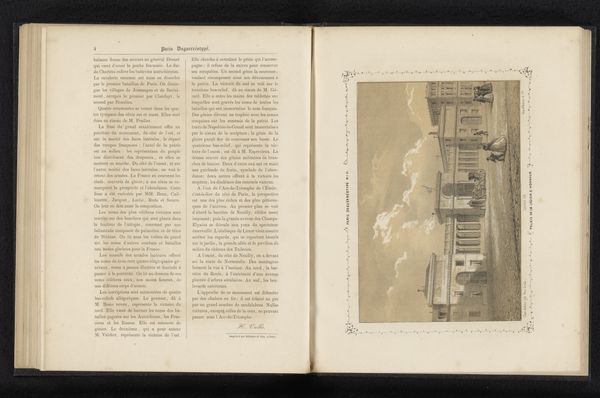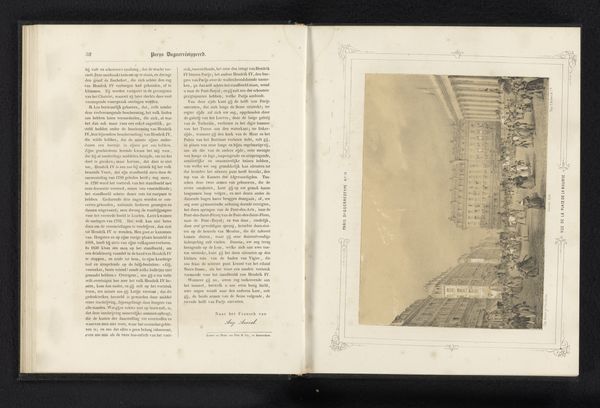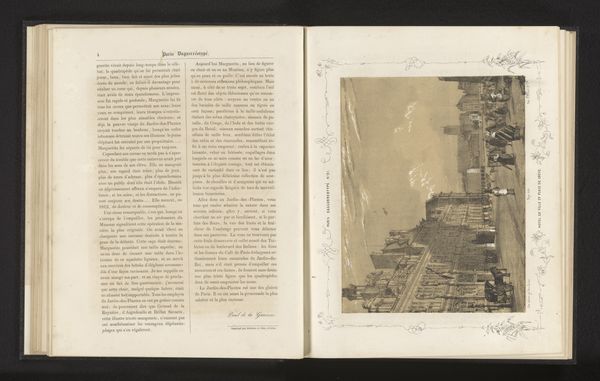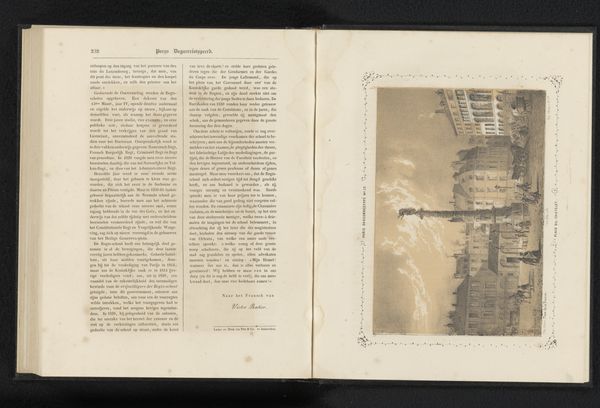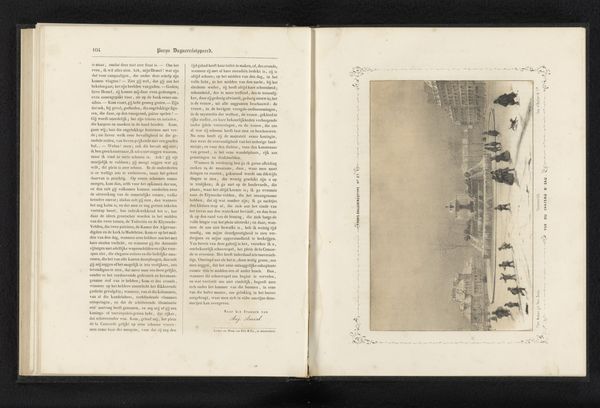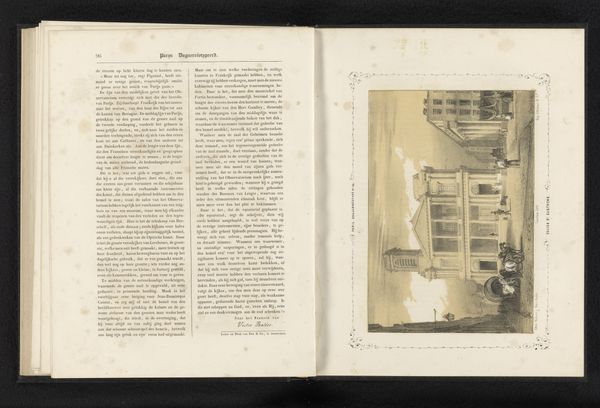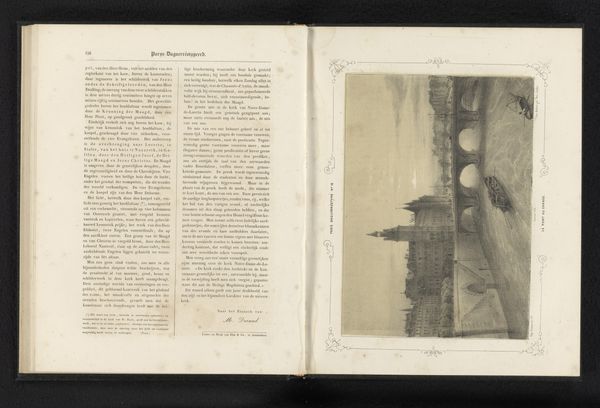
print, engraving
# print
#
romanticism
#
cityscape
#
history-painting
#
engraving
Dimensions: height 210 mm, width 260 mm
Copyright: Rijks Museum: Open Domain
Editor: This is "Place de la Bourse in Paris," a print by Frédéric Sorrieu, made before 1840. It depicts a bustling cityscape with a large building in the background. It has a romantic, almost idealized feel to it, don't you think? What catches your eye about this engraving? Curator: Immediately, I think of the printing process itself. This isn't just an image, it's the result of skilled labor, the product of metal plates meticulously engraved to reproduce this vista. Think of the artisan, likely working in collaboration within a larger printing house, responding to market demands for these kinds of urban views. How accessible would you imagine a print like this was at the time? Editor: Presumably not incredibly accessible, although potentially more so than an original painting? So, its purpose might have been to disseminate images of Parisian life more broadly? Curator: Exactly. We have to consider the economic context. Prints like this fueled a growing market for images, catering to a burgeoning middle class eager to consume depictions of urban life and historical moments. And what about the material itself, this paper and ink? These are goods traded and produced across the globe. Editor: That’s fascinating! It shifts my focus from the aesthetic to the means of production and distribution. I had been so focused on its sort of 'romantic' depiction, I overlooked that this in itself can be read as the outcome of labor and availability of goods. Curator: Precisely. By looking at the materiality and production, we begin to understand how seemingly simple artworks are intertwined with economic and social forces.
Comments
No comments
Be the first to comment and join the conversation on the ultimate creative platform.
